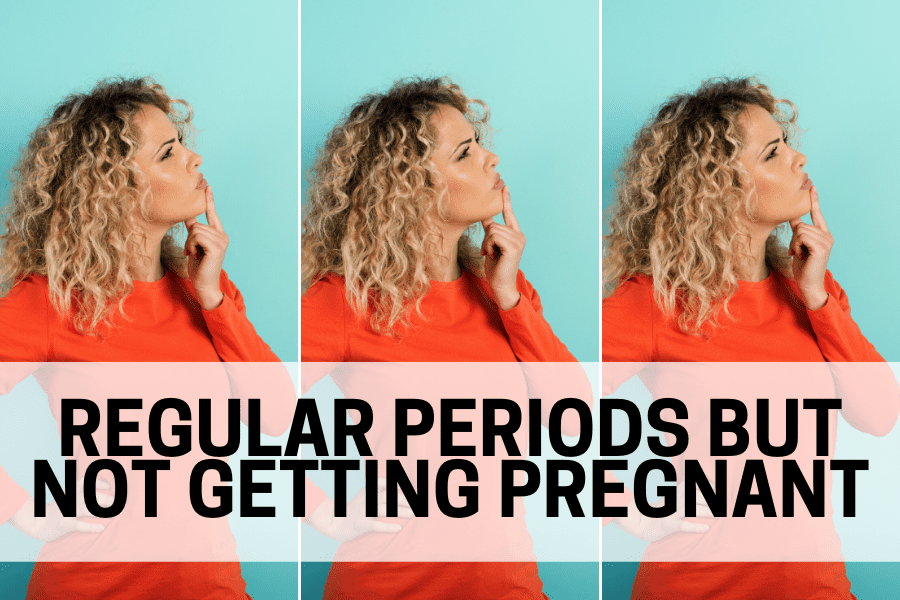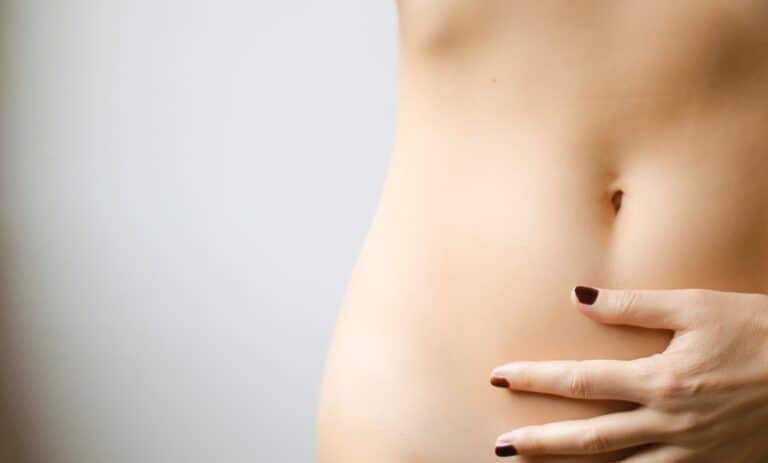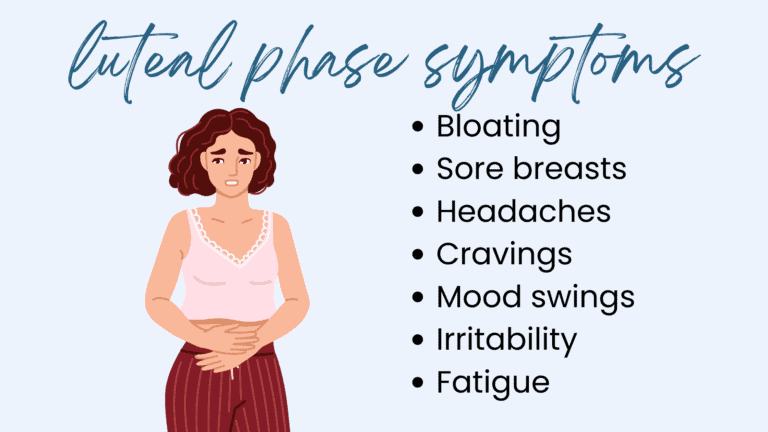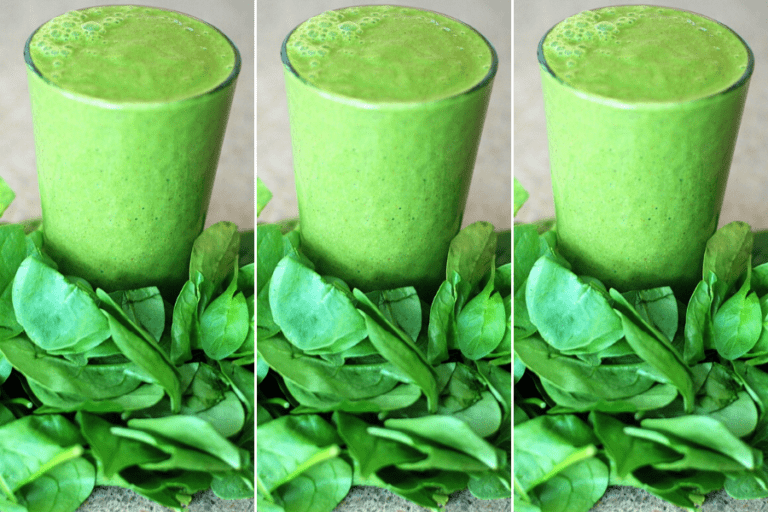When You Have Regular Periods but Not Getting Pregnant | What’s Next?

Last Updated on October 3, 2023 by Avi Steen
Trying to get pregnant can be an exciting but anxious time. For many women, it may seem like all they need to do is have regular periods, and they will conceive. However, a normal cycle is not the only indicator of fertility. In this blog post, we’ll explore four reasons why, although you have regular periods, you’re still not getting pregnant.
I Was Having Regular Periods but Not Getting Pregnant
It’s an all too common question. I have regular periods, but I’m not getting pregnant. What’s going on?
Doctors might even tell you there’s nothing wrong with you and dismiss your concerns.
But what if there is something missing?
For me, there was. That’s why I want to share how I tried to get pregnant for almost a year before receiving a positive pregnancy test.
I was trying all the things, or so I thought. The ovulation predictor kits, the pineapple core, and I have a regular cycle of 28 days. But there was more to it.
I want to explain a few reasons why you may be having regular periods but still not getting pregnant. I’ll also let you know which of these reasons applied to my journey.
Why does this happen?
There could be many reasons why this could be happening to you. I want to take a look at a few common things you can do on your end or take to your fertility coach or specialist. Some common reasons to look at:
- Length of your cycle
- Ovulation
- Cervical Mucus
- Hormone Balance
- Basal Body Temperatures
- Foods You’re Eating
LATEST POSTS
- Best Age to Get Pregnant with PCOS
- Say a Prayer for Fertility in 5 Easy Steps
- 7 Insane Foods to Eat to Get Pregnant That Will Give You a Fertility Boost
- A Complete Guide: When To Get Pregnant
- 7 Ways to Survive the Holidays While Trying to Conceive
Not Pregnant Yet? Try This.

Evaluate Your Cycle
The length of your cycle can give you some clues about whether or not you’re ovulating. A typical cycle lasts anywhere from 21 to 35 days, from day 1 of your last menstrual to day 1 of your next.
If your cycle is shorter or longer than this range, it could be a sign that you’re not ovulating. Other signs that your cycle is abnormal include bleeding that is heavier or lighter than usual or irregular spotting between periods.
Women with longer periods tend to have longer follicular phases, the time when you’re egg is maturing for release into the real world. Women with polycystic ovary syndrome (PCOS) often have longer cycles and, therefore, take longer to ovulate in their cycle.
Do You Have Cervical Mucus?
Cervical mucus is produced by the cervix and changes throughout your menstrual cycle in response to hormonal fluctuations.
Around the time of ovulation, cervical mucus becomes thin, clear, and slippery—sort of like raw egg whites—to facilitate the transport of sperm through the cervix and into the uterus.
If you’re not seeing this type of cervical mucus, it could be a reason you’re not getting pregnant.

Do You Have Signs of Hormonal Imbalance?
Hormonal imbalances can cause a wide range of symptoms, including bloating, constipation, weight gain or loss, mood swings, headaches, and fatigue.
This was my issue while trying to get pregnant. I had horrible gut health, which caused hormonal imbalance through constipation and bloating while, yes, having regular periods.
Often, regular cycles don’t always mean balanced hormones. If you do have signs of hormonal imbalance, it’s best to address the particular issue so you can move forward with your fertility journey.
Are Your Basal Body Temperatures Shifting?
Basal body temperature (BBT) is the temperature taken when you first wake up in the morning before you get out of bed.
Every day, around the same time, preferably.
Your BBT varies throughout your menstrual cycle and spikes around the time of ovulation due to an increase in progesterone production by the corpus luteum, which is responsible for sustaining pregnancy until the placenta takes over at around 10 weeks gestation.
You can track your BBT using a special basal body temperature thermometer available at most drugstores and tracking inside a fertility tracking app. If your BBT does not have a significant shift in temperatures each month to signify ovulation, this could be another reason you’re not getting pregnant.
What Are You Consuming?
This goes hand in hand with balancing hormones. What are you currently consuming and feeding your fertility each day? A fertility-friendly diet should be full of fresh fruits, vegetables, nuts, and seeds in order to maintain decreased inflammation for optimal health.
This was a biggie for me.
What I was eating was heavily affecting my hormones. I knew that dairy and meat slowed my digestion, but cheese was just so good! Amiright?!
But I really desired to have children and get my health back on track. So, I ditched the dairy and went vegetarian (for the most part) in order to get pregnant naturally.
Fun fact: My first-born won’t touch meat, probably because I was vegetarian the entire pregnancy.
Schedule a Consultation
After you’ve evaluated for irregular periods and the steps above, it may be time to get a second set of eyes on your situation.
Schedule a consultation with your local fertility specialist to discuss your fertility issues and possible fertility treatments.
A fertility specialist or health coach can help guide you on the next steps in your journey to a healthy pregnancy.
What’s Next?
If you have regular periods but are not getting pregnant, it’s important to evaluate your menstrual cycle and look for other signs that you may not be ovulating.
These signs include abnormal menstrual cycles, lack of cervical mucus, signs of hormonal imbalance, and basal body temperatures that don’t increase around the time of ovulation each month.
If you suspect that you may not be ovulating, it’s important to talk to an infertility specialist or fertility coach so that they can help you in your journey to get pregnant.
Signs You’re Body Is Ready for Pregnancy
Fertility Mini Course
Grab this free fertility mini-course to learn more about what they left out of fifth-grade health class.


Octavia Steen is an NBDA certified fertility doula, health coach, certified fitness nutrition specialist, aspiring missionary with the COGIC, and owner of Mother Mindset. She helps future and current mamas become more consistent in faith + fitness and grow closer to God so they can create a healthier lifestyle from the inside out!






